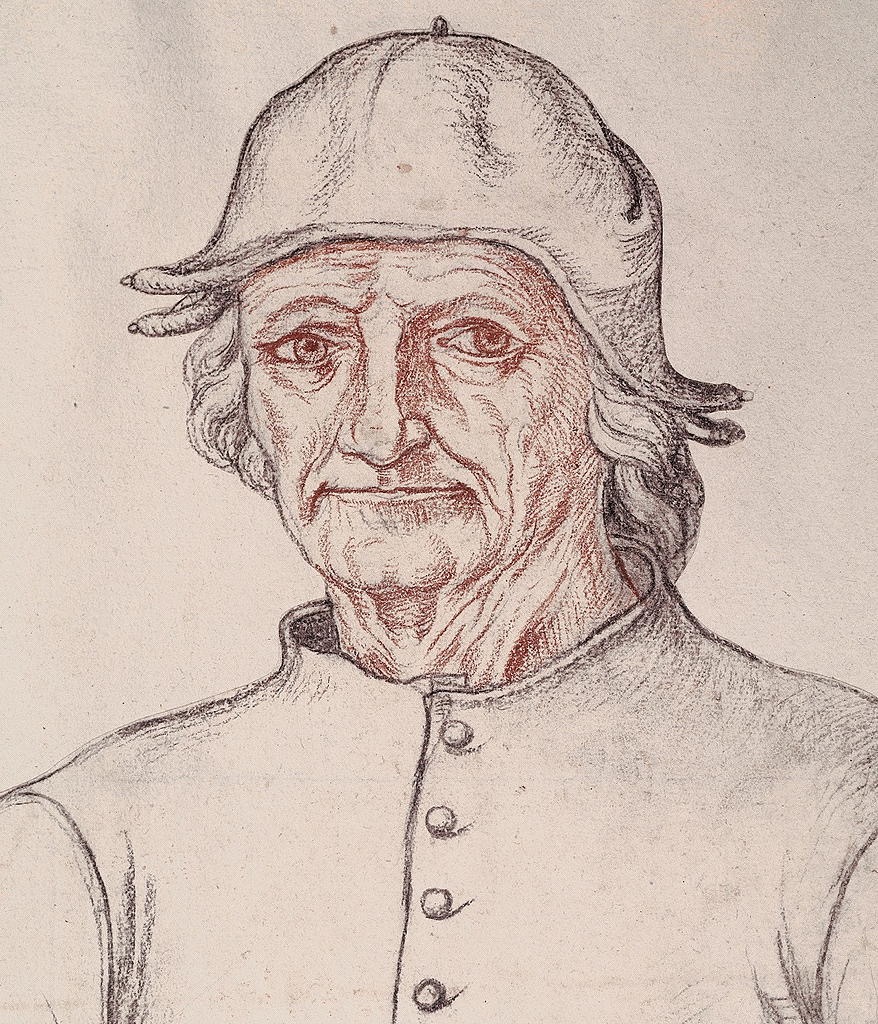AnSight

Attributed to Jacques Le Boucq: Posthumous Portrait of Hieronymus Bosch (1550)
"The Purpose of Mathematical Programming Is Insight, Not Numbers"
Arthur M. Geoffrion
"Authoring might at essence be nothing more than discovering how to usefully think about Authoring …"
©2022 by David A. Schmaltz - all rights reserved
I suspect that the often frantic search for answers amounts to little more than a typical stupid human trick, one of those traps into which we as a species seem to too easily stumble. When a question stumps me, I usually seek an answer to that question, when answer rarely serves as an initial stage of resolution. An answer tends to be something more like the final stage resolution, the end of attempts to resolve, not the go-to first step, yet we persist in first seeking answers. What might we seek instead? Experience alone might have long ago suggested that we'd be much better off seeking insights instead of answers, for, like management professor Arthur M. Geoffrion proposed in his 1976 essay of the same name, The Purpose of Mathematical Programming is Insight, Not Answers. Likewise, the first purpose of resolving questions might well be to somehow stumble upon some useful insight rather than to expect to somehow cobble together some resolving answer from the outset. An insight might lead to resolution while a search for a resolving answer most often produces little more than a frustrating stymie.
As with many things, the long way seems to be the shortcut when attempting to resolve some burning question. When Authoring, I suspect that many of the associated burning questions have no immediate answers. In my case, the questions surrounding how I might go about explaining each manuscript seem straightforward enough, as if I merely needed to decide and describe, but I sense a double bind in there. The question itself probably qualifies as a begging one, one which presumes an answer of a particular order, of the same order as the question gets posed. This amounts to a yes or no question which presupposes only two responses when there might well be an infinite number of better responses, or an infinite number less two. But how do you or I or anybody ever see through the presumptive veil masking the question? No yes or no response will resolve anything. Perhaps an insight will visit, but seeking an answer might well blind you or me or anybody to the emergence of the often tiny difference an insight tends to make when it first appears. It might well be that we're always surrounded by swarms of insights but too insensitive to sense most of them, or any of them at first.
Seeking THE answer probably makes matters worse, but that being a stupid human trick, it might well serve as the one best way to finally see a useful insight surrounding you or me or anybody. Understanding that the initial search will very likely prove unfruitful could itself prove very useful in terms of mustering the motivation for continuing the search. The first stage should properly prove disappointing, perhaps even depressing. You or me or anybody might even dabble in a little depression or at least some well-earned discouragement, for it might well seem that you or me or anybody has lost their edge and proven too stupid to resolve their perhaps innocent-seeming question. One, you or me or anybody, remains perfectly free to abandon the search for resolution at any time, and many will but some won't. Those who don't find themselves engaged in a snipe hunt.
A snipe hunt amounts to a practical joke, whereby some innocent gets duped into trying to capture a non-existent bird. Given often elaborate instructions for successfully capturing the prey, the dupe's let loose to perform the actions to the hilarity of the instructing majority. I equate insight seeking with snipe hunting not because they both represent fool's missions, but because they both seem to represent fool's missions at first. The difference centers around the fact that regardless of whatever the dupe does, he will not attract any snipes, since snipes do not and never will exist. Insights, though, never exist at first, but tend to emerge as a result of engaging with a certain sort of awareness or consciousness or hopefulness or something. No amount of any of those will ever conjure up a snipe, but some combination of those and other focuses tend to reliably attract an insight. Remember, insights are not answers. They rarely, as in almost never, fully resolve the overall question, but they often serve as leverage points which can become turning points ultimately resulting in resolution. Like understanding that an almost infinite array of answers exist to any yes our no question does not determine which answer to apply, though it does shift the limit from a suffocating two to something approaching the sky.
I might label this whole process AnSight. I'm closer to resolution this morning than I was yesterday when I reported that I felt encumbered in Doubting. I do not have the whole answer yet, but I sense melting imaginary walls I'd built around my recent stuckness. I sense other dimensions entering into my considerations. The questions remain but the conviction that they were fundamentally unanswerable seems to be starting to crumble, for like insights and answers, if I throw the proper insight at the fundamentally unanswerable, answering might not matter. I was probably just thinking about Authoring wrong, which should not feel surprising since I'm just learning how to think about it. I suspect that there are a nearly infinite number of ways to think about Authoring. Why should I expect that I'd stumble upon a useful way from the outset? Authoring might at essence be nothing more than discovering how to usefully think about Authoring, seeking insights rather than answers.


